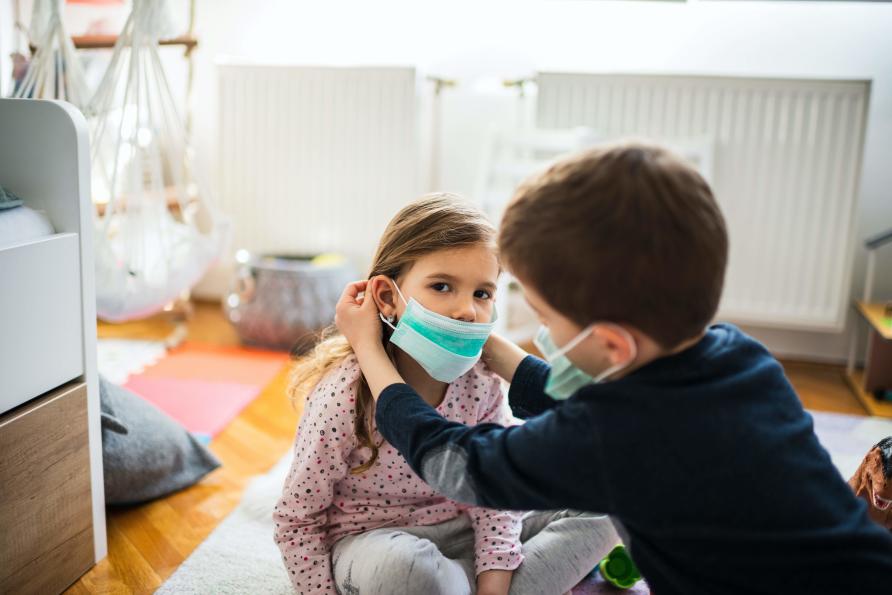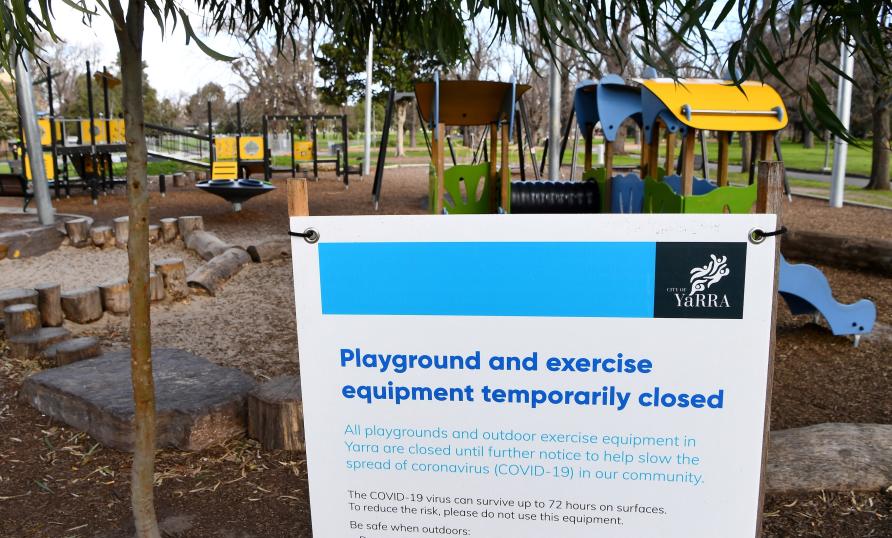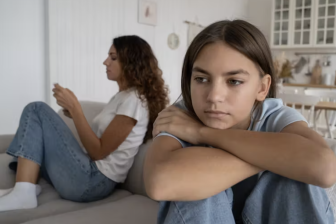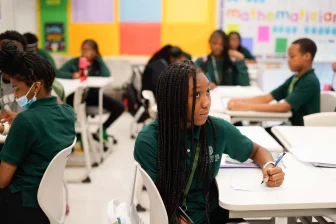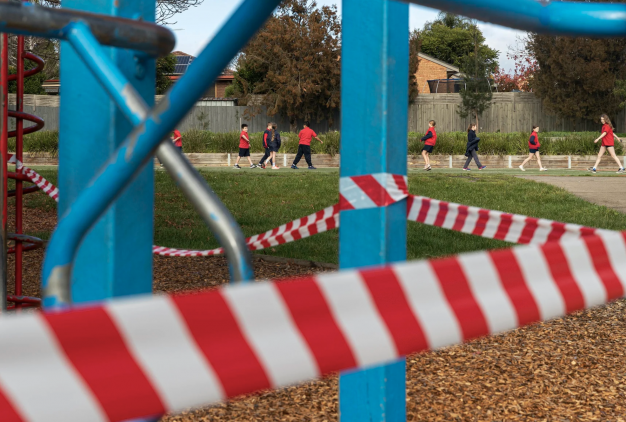
Looking out for our kids through lockdowns
“Last year things felt different: it was new; there was a sense of perhaps relief from busy life, when we were able to fill time doing things that we wouldn’t otherwise have done as a family – lots of cooking, doing jigsaws and bike riding,” said mother Zoe Daniel.
“But there’s a sense now of: when will this ever end? And how do you progress, not only as a family, but as an individual through that?”
Zoe was speaking as a panellist with her 14-year-old son Arkie on our In Pursuit of Health seminar on ‘Tips to help families cope during lockdown,’ write Professor Sarath Ranganathan and Professor David Coghill, Royal Children’s Hospital and University of Melbourne.
Over 2000 listeners who logged on would have been able to relate to Zoe’s sentiments. In the seminar Q&A, parents raised concerns for their children’s poor sleep, anxiety, loneliness, grief, too much screen-time and the unique challenges for neurodiverse children.
But Arkie was more positive in his comments. “Last year was way harder in terms of motivation,” he said. “This lockdown I’ve really improved in motivating myself and finding ways to go out and be fit, stay active even during lockdown.”
We need to try and look out for the positives
Bringing a positive attitude like this is a really important way to build resilience and a reminder that, as parents and carers, we need to try and look out for the positives, rather than the negatives. And there are positives.
For example, the Royal Children’s Hospital National Child Health Poll highlights that three quarters of parents report that their families are becoming closer and almost half feel more connected to their child since the pandemic.
Also, findings in the recent Good Childhood Report show 85 per cent of 10 to 17-year-olds in the UK feel they have been coping relatively well during the pandemic.
But while children and young people can surprise us with their resilience, we can also miss warning signs of mental health issues.
The Royal Children’s Hospital National Child Health Poll indicates that almost half (46 per cent) of parents believe that the COVID-19 pandemic is having a negative impact on their own mental health and a third (36 per cent) say it is negatively affecting the mental health of their child.
International studies also suggest that around one in four young people globally are experiencing clinically elevated depression symptoms, while one in five youth are experiencing clinically elevated anxiety symptoms.
“GPs are seeing increased numbers of children, young people and families that are experiencing issues maybe for the first time and coming forward not having had a background of stress or mental health experiences in the past. And some have had a reactivation of problems that they’ve had in the past,” Professor Lena Sanci, Head of Department of General Practice at the University of Melbourne, told the seminar.
Importantly, rates appear to be increasing over time and are higher in those areas which are experiencing longer lockdowns suggesting that they are at least in part related to the impact of these restrictions on our young people.
So, what are the signs of anxiety and depression in children? At its simplest, any changes from a child’s previous behaviours and activities are a potential warning sign.
Children with anxiety may describe feeling tightness around the chest, difficulties breathing and a racing heartbeat. They may sleep less well or report other physical symptoms, like headaches. They will often seem to worry over small things that didn’t previously bother them, and above all they will avoid things and situations that trigger their anxiety.
Depression in children might not be obvious
A child may describe a low mood, but symptoms often show up as irritability. Sleep is poor, with either too much or too little. Warning signs may include reduced activity levels, lack of energy and motivation, and enjoying things less than usual.
Withdrawing from friends and family and isolating themselves in their rooms. These signs can be easily missed, when everyone is physically distancing and family members pursue work and school in different corners of the house, often with doors closed. Many evidence-based approaches for managing anxiety and depression can be applied at home and are just as relevant for day-to-day life as they are within a therapy setting.
A key principle is the development of consistent and predictable routines that cover schoolwork, sleep, screen use and physical activity. Routines can also incorporate relaxation techniques and mindfulness practices that can improve mood and lower anxiety.
“One of the things we’ve really lost in prolonged lockdown is our rhythm and structure in life. Every day starts to look the same,” paediatrician, Anthea Rhodes from the Royal Children’s Hospital and University of Melbourne, told the seminar.
Signs can easily be missed
“Often in normal life that rhythm and structure is what carries us along. If you can be quite strict about getting up and getting going in a certain way every morning for yourself and your kids, you will see the flow-on effects for the rest of the day.”
Psychologist and author Dr Michael Carr-Greg suggested creating a schedule for after-school hours, “perhaps with a ‘surprise event’ that gives them something to look forward to.”
Both physical and creative activities, as well as play are effective at reducing symptoms of anxiety and depression while also increasing connectivity and having fun. And while we are wary of kids having too much ‘screen time’, there are excellent quality apps to support mindfulness for children and young people, featured on the RearchOut website.
Improving connectivity within families, with peers, school and the neighbourhood is effective both at reducing loneliness and improving mood, even if that connectivity has to be through screens.
Parents should also encourage their children to talk about their feelings, which releases tension and helps others to recognise their own feelings. Parents also need to remember that there is an undeniable link between their wellbeing and that of their children. A recent study identified that parenting stress is the key mediating factor between maternal distress and child depression.
“We have now had over 18 months of protracted uncertainty and stress and this is unprecedented for all of us. It’s really important for parents to realise that the way they might be feeling is probably normal for a response to this type of thing. So, don’t be tough on yourself,” Dr Rhodes said.
“Parents, need to ‘put on their oxygen mask first’ with good habits around diet, exercise, sleep and connection,” said Dr Carr-Greg.
“Parents set the emotional tone. Young people are great imitators and parents need to be fairly optimistic and purveyors of hope.”
This article was first published on Pursuit at the University of Melbourne. Read the original article.
More resources for wellbeing include: ReachOut – mental health service for young people and parents with apps and links to other sites; Butterfly and Eating Disorders Victoria – eating disorder support; Beyond Blue –mental health information and support; Headspace – early intervention mental health services to 12-25 year olds; The Brave Program – online program for the prevention and treatment of childhood and adolescent anxiety.
Images: Getty Images


